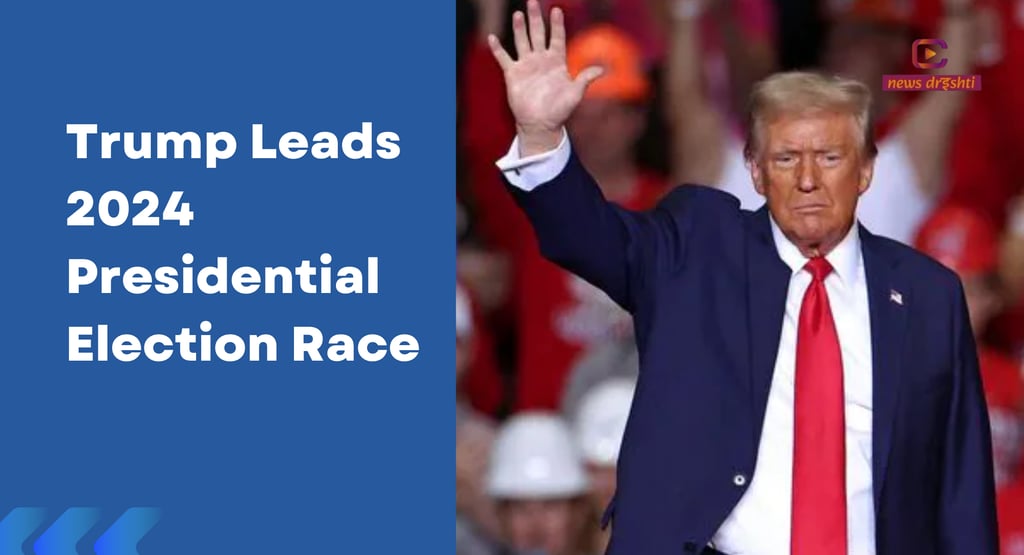Trump Leads 2024 Presidential Election Race
As the U.S. 2024 presidential election nears its climax, Donald Trump holds a significant lead with 267 electoral college votes, while Kamala Harris trails with 214. This pivotal moment could heral...
INTERNATIONAL


As the 2024 U.S. presidential election approaches its critical final stages, Donald Trump has taken a commanding lead, securing 267 electoral college votes. This places him on the brink of reclaiming the presidency, a position he held from 2017 to 2021. Vice President Kamala Harris, representing the Democratic Party, trails with 214 votes, intensifying the race's suspense as remaining votes are counted. The outcome could mark a historic return for Trump, who remains a polarizing figure in American and global politics.
Trump's lead signals a substantial shift in voter sentiment, reflecting broad support among rural, working-class, and conservative segments who have continually championed his policies. Supporters have voiced a desire to revisit Trump's hardline stances on immigration, economic policy, and foreign relations, especially concerning China. On the other hand, Kamala Harris’s campaign has centered on social reform, climate change initiatives, and a healthcare overhaul, resonating primarily with urban and progressive voters.
The international reaction has been immediate, with global leaders monitoring the U.S. election closely due to its far-reaching impact on international relations. Canadian Prime Minister Justin Trudeau, known for his vocal opposition to Trump’s previous administration, has publicly criticized the potential return to Trump’s policies. Trudeau expressed concern over Trump’s approach to global alliances and his policies, which he suggests could strain U.S.-Canada relations and potentially disrupt international trade agreements.
Canada’s opposition MP Chandra Arya has also voiced his perspective, sharing a cautionary outlook on Trump’s lead. Arya cited concerns about the potential for increased polarization in North America, which could influence immigration and cultural policies. Arya emphasized the need for Canadian leaders to prepare for shifts in foreign policy if Trump resumes the presidency, noting the potential impact on cross-border relations.
As Americans await the final results, analysts have observed an uptick in global interest, particularly among allies who rely on stable U.S. foreign policies. Political experts suggest that Trump's return could lead to significant changes in diplomatic relations and global trade practices. Conversely, a Harris win would likely extend current U.S. policies, fostering continuity in international relations.
With key states yet to announce final results, both parties are mobilizing last-minute campaigns to secure a path to victory. The outcome of this election will not only shape the future of the U.S. but will also send ripples across the world, influencing economic and political landscapes for years to come.
